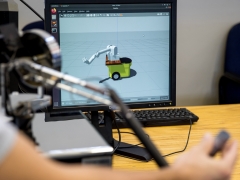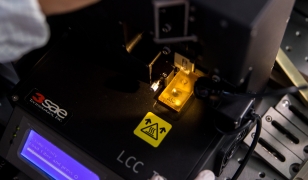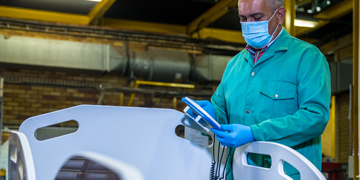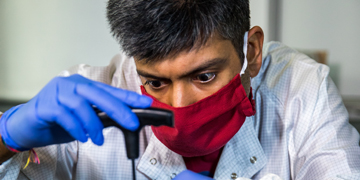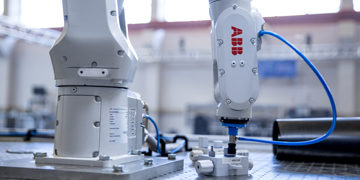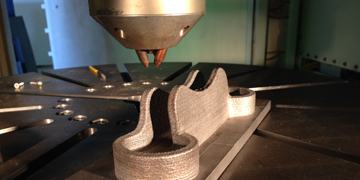Future production: Manufacturing
CSIR Future Production: Manufacturing focuses its science, engineering and technology base on contributing towards South Africa’s re-industrialisation by developing or facilitating the uptake of new technologies that will improve the competitiveness and productivity of strategic local economic sectors. This includes technologies and paradigms articulated through the fourth industrial revolution (4IR). The CSIR’s competences in manufacturing enables it to assist the state to better address socioeconomic development through technologically enhanced service delivery.
CSIR’s Future Production: Manufacturing builds world-class capabilities for the engineering and production industries in South Africa, which includes localising and developing transformative and efficient ways of manufacturing existing and new products. The outcome includes more local original equipment manufacturers, expanding exports and capturing a larger share of global high-value manufacturing.
Titanium additive manufacturing and materials engineering are examples of capabilities in new and advanced materials, and new technologies for product and product manufacturing. Expertise in digital transformation and product lifecycle management that combines product, process and business model innovation over the full lifecycle of a product, and a learning factory to support skills development and training in 4IR domains further strengthens the CSIR’s offering in manufacturing.
Impact areas
Advanced Materials Engineering: Applying expertise and infrastructure to lead in areas such as structural design and analysis, and the development of advanced casting and powder metallurgy technologies. This domain houses the Light Metals Development Network and the Titanium Centre of Competence that are multi-user national platforms supporting industrialisation Initiatives.
Industrial Sensors: Focusing on the custom development of products in the field of inspection and monitoring systems, and working with private and public sector players of all sizes on sensor innovations. Also pursuing use of ultrasonics in medical diagnostics.
Centre for Robotics and Future Production: Focusing on disruptive technologies that dominate the 4IR, with the aim of enabling the local manufacturing industry to be globally competitive. Technology areas that the centre incubates include industrial robotics, industrial artificial intelligence and future production systems.
Photonics Centre: Supporting the development of photonics, specifically laser-based technologies for advanced manufacturing applications. This includes applications in laser-based surface engineering, additive manufacturing, processing technologies and the associated facilities open to industry partners. It also includes medical imaging for diagnosis; use of lasers in corrective treatments; detecting antibodies, enzymes and cell phenotypes; and miniaturisation technology, including bio-sensors.
Industry Connect: Supporting industry by improving competitiveness in niche areas, fostering new technology development, de-risking technology, facilitating technology transfer, and undertaking supplier development. This is in line with the CSIR objective to collaboratively innovate and localise technologies and provide high-impact industries with access to infrastructure and expertise. This includes the Aerospace Industry Support Initiative managed on behalf of the Department of Trade, Industry and Competition.





